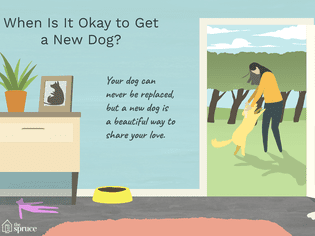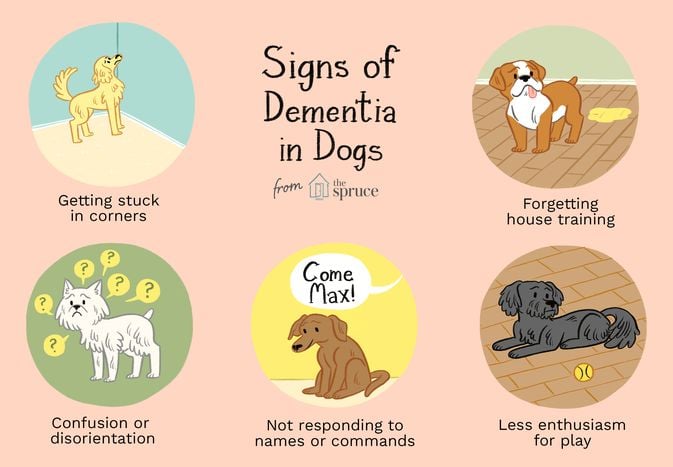Littermate syndrome is a term sometimes used to describe sibling rivalry or extreme attachment between dogs. There's a longstanding theory that when sibling dogs are raised together, problems can develop. The two dogs may begin to fight with one another, or they may become overly bonded to the point that they become anxious when separated.
There's some dispute over this so-called syndrome because there's a lack of scientific evidence to support it. While anecdotal reports suggest that littermate syndrome does occur, the fact is that conflict and attachment issues can develop in any canine relationship, even among unrelated dogs. Furthermore, when sibling relationships struggle, it often has more to do with inadequate socialization and training than familial relations.
What Is Littermate Syndrome in Dogs?
Littermate syndrome is an unscientific term that describes unwanted behaviors among sibling dogs, including aggression and intense attachment. The phrase is often used to describe behavioral issues that occur when two or more dogs from the same litter are raised together and adopted into the same home. One or both of the following concerns may arise:
- Siblings begin to display aggression toward one another as they mature
- Siblings are so closely bonded that they develop intense anxiety or fear if they are separated
Despite the lack of scientific evidence on the subject, many dog enthusiasts believe that littermates should not be adopted and raised together. However, even anecdotal evidence implies that littermate syndrome is uncommon. And relationship struggles can certainly develop among dogs who are not littermates.
Rather than labeling these behaviors as "littermate syndrome," some canine behavior experts prefer to examine each individual behavior and seek specific solutions. Establishing and maintaining a harmonious home is really about proper training and socialization, regardless of the dogs' bloodlines.
Why Do Dogs Develop Littermate Syndrome?
Canine behaviors labeled as "littermate syndrome" are said to be the potential result of raising two or more puppies together.
One idea behind littermate aggression is that some dogs struggle while establishing relationship dynamics, especially as they reach adolescence and social maturity. This may lead to conflict between dogs. However, there are a number of reasons for fighting among dogs, most of which are unrelated to age or familial relation.
The most likely reason why some puppies develop hyper-attachment comes down to how the pups were raised. Puppies are typically not as open to new experiences after the socialization period ends (around 12 weeks of age). If two puppies spend all of their time together through the socialization window, they may have trouble adjusting to situations alone. If all or most of their learning experiences occur together, they learn to rely on one another and potentially less on humans.
Plus, a closely bonded pair of puppies may miss out on crucial interactions that help them pick up on human cues and form bonds with people. And if puppies are trained and socialized together without regard for their individual personalities and learning capabilities, they may learn to only work as a unit.
Signs of Littermate Syndrome in Dogs
The behaviors sometimes labeled as littermate syndrome are relatively uncommon.
Sometimes, dogs will challenge one another for access to resources, such as food, toys, and beds. This is called resource guarding, and it can easily lead to fighting among dogs. Dogs may also redirect aggression to a housemate (for example, seeing a strange dog near the property may cause one dog to lash out at another).
Closely bonded dogs may panic if they are separated (even by a few feet). They may be more fearful of new people, objects, and situations when apart.
It's possible for dogs to exhibit aggression at some times and separation anxiety at others. For example, two dogs may be known to fight over treats, but may still become anxious if they are separated from one another.
Next Steps for Littermate Syndrome in Dogs
If your dogs are exhibiting concerning behaviors that sound like littermate syndrome, there may be ways you can help them. Some sources suggest that rehoming one of the dogs is the only solution, but this is not always the case. Start by observing your dogs and recording the details and circumstances of the undesired behaviors. This may help you figure out if there are specific triggers or patterns to the behaviors.
See Your Vet
Before attempting to address behavioral concerns, it's essential to visit the veterinarian to make sure there are no physical issues contributing to the behaviors. Your vet can also discuss behavioral concerns and can refer you to another pet professional for help.
Contact a Behavior Professional
Seek assistance from a certified dog trainer or behaviorist who can assess your dogs and develop a plan to help. A professional may be able to pick up on subtle cues and triggers that indicate conflict or anxiety. In severe cases, a board-certified veterinary behaviorist may be the best option for you and your dogs.
Educate Yourself
Learn about canine body language and communication so you can more readily identify concerning behaviors before a fight breaks out or panic sets in. Research general puppy care as well as training and socialization techniques that are based on positive reinforcement. This will help you communicate with your puppies and set them up for a happy life.
Work Individually
Spend time training and socializing each dog separately. For hyper-bonded dogs, you may need to gradually increase the distance between them before you can work with each dog individually. If separating the dogs causes severe anxiety or fear, seek professional help rather than attempting to do this on your own.
Prevent Conflict
If you know there are specific triggers that lead to fighting, try to control the environment to avoid conflict. Feed dogs separately and pick up bowls, treats, and toys when the dogs are together. If your dogs have conflicts during walks, be sure to walk them separately.
Unfortunately, sometimes two dogs just don’t get along. This can happen between littermates or unrelated dogs. Just like humans, dogs are unique individuals, so there is no one way to address the issue. It is essential to take steps to deal with the problem as soon as possible and to enlist the help of your veterinarian. The earlier you intervene, the better the chances of a successful outcome.










Comments on " Littermate Syndrome in Dogs" :